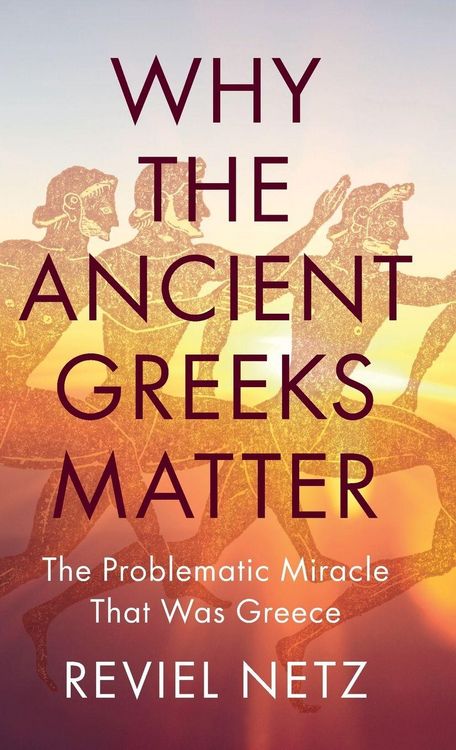
Why the Ancient Greeks Matter The Problematic Miracle that was Greece
-
- Englisch ausgewählt
24,99 €
inkl. MwSt,
Lieferung nach Hause
Beschreibung
Details
Einband
Gebundene Ausgabe
Erscheinungsdatum
06.02.2025
Verlag
Cambridge University PressSeitenzahl
188
Maße (L/B/H)
22,2/14,5/1,5 cm
Gewicht
370 g
Sprache
Englisch
ISBN
978-1-00-950559-8
The ancient Greeks were exceptional and they were consequential. This innovative, engrossingly written book addresses head-on the problematic question of the Greek Miracle. It will appeal to anyone interested in the ancient world and its modern meaning. Reviel Netz boldly argues that the traditional understanding of the Greek legacy as a store of timeless values is false to the Greek literary canon itself. The latter is in fact made up of contradictory texts, sharing no common core of beliefs. This is precisely, for the author, the canon's significance: by presenting a system of works-in-polemic, it created a template for a culture of open debate, leading all the way down to modern civil society. The most lasting result of this practice of open discourse was in science, where Greek disputations paved the way for an autonomous scientific culture and opened the door both to the scientific revolution and the modern world.
Unsere Kundinnen und Kunden meinen
Verfassen Sie die erste Bewertung zu diesem Artikel
Helfen Sie anderen Kund*innen durch Ihre Meinung
Kurze Frage zu unserer Seite
Vielen Dank für dein Feedback
Wir nutzen dein Feedback, um unsere Produktseiten zu verbessern. Bitte habe Verständnis, dass wir dir keine Rückmeldung geben können. Falls du Kontakt mit uns aufnehmen möchtest, kannst du dich aber gerne an unseren Kund*innenservice wenden.
zum Kundenservice